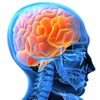Hey, egghead! Good foods for your brain
Notice how coffee can kickstart your brain? Or the kids go mental after a load of lollies at the Royal Show? That’s our brain reacting to what we are eating and drinking. If just a little bit of caffeine and sugar can produce such significant effects, imagine what a lifestyle of eating great brain food could do for your behaviour, health and ageing. Recently, scientists have put a lot of research into finding out how our brain responds to certain foods. The results are certain – how we eat effects our best asset, our brain.
Big needs for big brains
Many people are surprised to learn our brains use a lot of energy. For infants, 87% of their daily energy intake goes into their growing brain. By adulthood, the brain gives us a break and decreases to about 25% of our intake – but that’s still a quarter of our energy intake!
Kids’ brains are also very sensitive to different types of food, and research is revealing that children with ADHD are often deficient in iron or essential fatty acids. It’s hard enough to be a kid, so feeding them food high in vitamins and cutting out the junk is one of the best ways to show them we love them.
 | For more information, see Diets for ADHD. |
Let food be thy medicine
Ever eaten Macca’s and afterwards your head feels like a dropped pie? It’s not your imagination. Bad food can affect our mental health, including self-esteem, depression and performance in daily life. Not to mention the stress and fatigue of modern living, which makes it even worse. Sometimes food really is the best medicine, so before you get out the pills, try a week of eating foods free of preservatives and trans-fats.
We’re not asking you to go on a diet! Eat and be merry – just stay away from fast foods and sugary drinks for a while, and we guarantee your brain will benefit.
Nutrition for cognition
Nutrition is vital for thinking, what we call ‘cognition’. In order for the mind to carry on with its natural processes, it needs specific nutrients. In fact, it is now known that good neurodevelopment – which is basically our brain growing – requires essential nutrients. So, from when babies are born to about 2 years old, they must receive good nutrition or their precious brains may never grow properly.
Ageing gracefully, without the need for surgery
As you age, your brain literally shrinks. The synapses tend to break down, and this is what causes things like dementia. However, this process is associated with a lack of certain nutrients, meaning that if you deprive your brain of essential fatty acids and folate, it can happen faster and more severely.
List for life: Nutrients you need
Don’t stress, because knowing all this puts you ahead (pun intended)! Here’s a list of important nutrients you can seek out so your brain has a fighting chance.
Dietary lipids
These are found in dairy products and egg yolks. Lipids make up 10% the weight of the brain, and are essential for the proper formation of membranes and myelin.
Carotenoids and flavonoids
These fantastic antioxidants are found in yellow and orange fruits and vegetables.
Micronutrients
Micronutrients, including iron, zinc, choline, selenium, iodine, magnesium, B vitamins, and vitamins A and C, play key roles in energy metabolism.
- Folate: You can find your folate in great, leafy vegetables. As an added plus, folate is associated with good moods!
- Iodine: This micronutrient is especially influential during infancy. Lack of iodine can lead to mental retardation, so look for seafood on your dinner table.
- Vitamin D: Vitamin D deficiency is sometimes accompanied by depression, psychosis and anxiety. Receiving a good load of vitamin D can boost your mood, as well as reduce your risk of multiple sclerosis and epilepsy. The best sources of vitamin D include fatty fish and eggs.
- Iron: Iron deficiency is common, especially in women. It can lead to fatigue, lethargy, irritability, apathy and poor IQ. Lean meat and fish are your best sources of iron. If that doesn’t appeal, other protein-rich alternatives also provide this mineral, such as eggs, nuts and legumes. There are also supplements available.
- Vitamin B12: Find this brain food in lean beef, salmon and egg.
Protein
Protein intake is essential for the production of vital neurotransmitters, including dopamine, noradrenaline, histamine and glycine. One protein, tryptophan, is a precursor for serotonin, and has effects on mood and memory. Protein is largely found in meat, fish, poultry, eggs, liver and kidney, legumes, nuts, sunflower seeds and sesame seeds.
Essential fatty acids
We can’t make essential fatty acids ourselves, so we need to eat them. Try fish especially, or fish oil tablets.
From ‘moody’ to ‘foodie’
Give your brain a break and give your body a boost by mixing up your diet with a few of the foods suggested here. This is especially important in infants, children and older age. Look for delicious ways of incorporating brainy foods – you have to eat for the rest of your lives, so you might as well enjoy it!
More information
 | For more information on brain health, including the anatomy of the brain, the effects of nutrition and exercise on the brain, and the effect of mental activity on health, see Brain Health. |
 | For more information on nutrition, including information on types and composition of food, nutrition and people, conditions related to nutrition, and diets and recipes, as well as some useful videos and tools, see Nutrition. |
Dates
Created by:

 Login
Login














